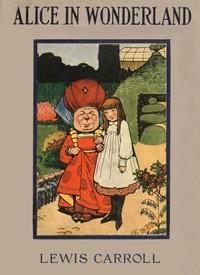Read this ebook for free! No credit card needed, absolutely nothing to pay.
Words: 54814 in 14 pages
This is an ebook sharing website. You can read the uploaded ebooks for free here. No credit cards needed, nothing to pay. If you want to own a digital copy of the ebook, or want to read offline with your favorite ebook-reader, then you can choose to buy and download the ebook.
In England and in Europe generally history shows us that there were a great many changes in the fifteenth and sixteenth centuries. This new love for adventure, which gave us so many new words, was one sign of the times. Then there were changes in manners, in religion, and in the way people thought about things. People had quite a new idea of the world. They now knew that, instead of being the centre of the universe, the earth was but one of many worlds whirling through space.
The seventeenth century was, of course, a period during which great things happened to the English state. It was the period of the great Civil War, in which the Parliament fought against the king, so that it could have the chief part in the government of the country.
Perhaps we have said enough in this chapter to show how each big movement in history has given us a new group of words and how these words are in a way historians of these movements.
HOW WE GOT OUR CHRISTIAN NAMES AND SURNAMES.
We can learn some interesting stories from the history of our own names. Most people nowadays have one or more Christian names and a surname, but this was not always the case. Every Christian from the earliest days of Christianity must have had a Christian name given to him at baptism. And before the days of Christianity every man, woman, or child must have had some name. But the practice of giving surnames grew up only very gradually in the countries of Europe. At first only a few royal or noble families had sur-names, or "super" names; but gradually, as the populations of the different countries became larger, it became necessary for people to have surnames, so as to distinguish those with the same Christian names from each other.
In these days children are generally given for their Christian names family names, or names which their parents think beautiful or suitable. The Christian names of the children of European countries come to us from many different languages. Perhaps the greatest number come to us from the Hebrew, because these Jewish names are, of course, found in great numbers in the Bible.
The conversion of the countries of Europe to Christianity united them in their ways of thinking and believing, and they all honoured the saints. The names of the early saints, whether they were from the Hebrew, Greek, Latin, Celtic, Teutonic, or Slavonic, were soon spread throughout all the countries of Europe, so that now French, German, English, Italian, Spanish names, and those of the other European countries, are for the most part the same, only spelt and pronounced a little differently in the different countries.
The name Joseph did not become common in Europe till after the Reformation, when the Catholic Church appointed a feast day for St. Joseph, the spouse of the Blessed Virgin. Towards the end of the eighteenth century the Emperor Leopold christened his son Joseph, and this, and the fact that Napoleon's first wife was named Josephine, made these two names as a boy's and a girl's name very popular. We have both Joseph and Josephine in English, and the French have Fifine and Finette as well as Josephine, for which these are pet names. In Italy, too, Joseph, or Giuseppe, is a common name, and Peppo, or Beppo, are short names for it. These pet names seem very strange when we remember Rachel's solemn choosing of the name for the first Joseph of all.
Perhaps the most peculiar Christian names that have ever been were the long names which some of the English Puritans gave their children in the seventeenth century. Often they gave them whole texts of Scripture as names, so that at least one small boy was called "Bind their nobles in chains and their kings in fetters of iron." Let us hope his relatives soon found some other name to call him "for short."
It is interesting to see in how many different ways people got their surnames. Sometimes this is easy, but it is more difficult in other cases.
The reason for this is easy to see. The smith, or man who made iron and other metals into plough-shares and swords, was one of the most important of all the workers in the early days when surnames were being made. There were many smiths, and John the Smith and Tom the Smith easily became John Smith and Tom Smith, and thus had a surname to pass on to their families.
But many chapters could be written on the history of names. This chapter shows only some of the ways in which we got our Christian names and surnames.
Free books android app tbrJar TBR JAR Read Free books online gutenberg
More posts by @FreeBooks


: Alice's Adventures in Wonderland by Carroll Lewis Robinson Gordon Illustrator - Fantasy fiction; Children's stories; Imaginary places Juvenile fiction; Alice (Fictitious character from Carroll) Juvenile fiction Children's Literature









